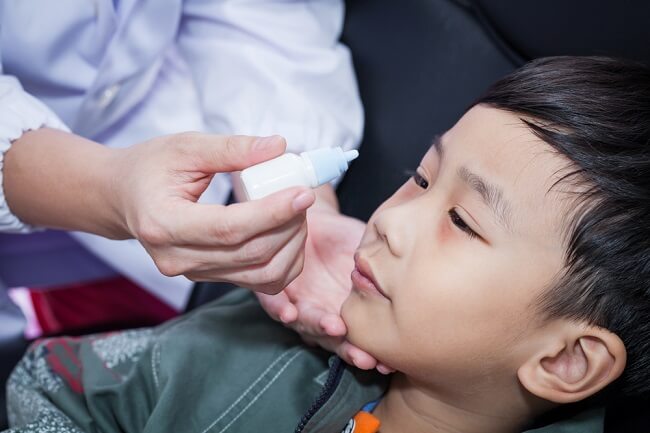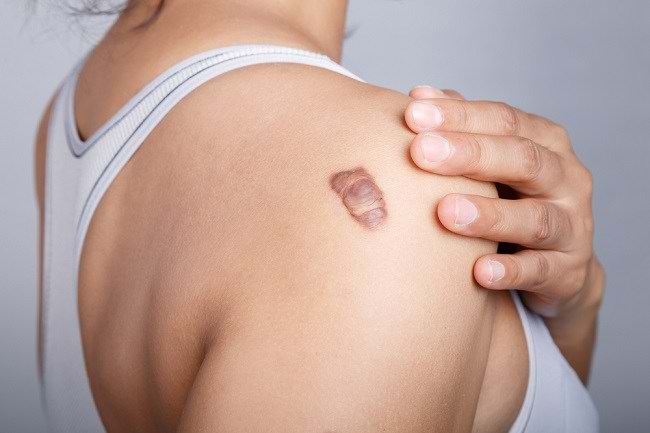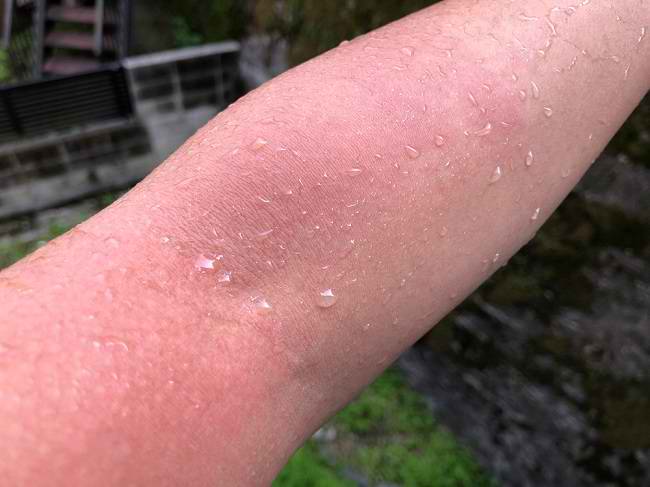Micafungin is a drug used to treat infections caused by fungi. This drug is only available in injectable form and must be used accordingly doctor's prescription.
Micafungin belongs to the echinocandin class of antifungal drugs. This drug works by stopping the growth and reproduction of fungi, by damaging the fungal cell walls. Micafungin is also used to prevent fungal infections in patients undergoing stem cell transplants.

micafungin trademark: Mycamine
What is Micafungin
| group | Prescription drugs |
| Category | antifungal |
| Benefit | Treating infections caused by fungi |
| Consumed by | Mature |
| Micafungin for pregnant and lactating women | Category C: Animal studies have shown adverse effects on the fetus, but there are no controlled studies in pregnant women. Drugs should only be used if the expected benefit outweighs the risk to the fetus. It is not known whether micafungin is absorbed into breast milk or not. If you are breastfeeding, do not use this medicine without consulting your doctor first. |
| Drug form | Inject |
Precautions Before Using Micafungin
Micafungin should not be used arbitrarily. The following are things you need to pay attention to before using micafungin:
- Tell your doctor if you are allergic to micafungin or to other echinocandin antifungal drugs, such as anidulafungin or caspofungin.
- Tell your doctor if you have or have ever had kidney disease, liver disease, cancer, or HIV/AIDS infection.
- Tell your doctor if you have recently had surgery, including dental surgery.
- Tell your doctor if you are pregnant, breastfeeding, or planning a pregnancy.
- Tell your doctor if you are taking any other medicines, including supplements or herbal products.
- Tell your doctor right away if you have an overdose, allergic reaction to a drug, or a more serious side effect, after using micafungin.
Dosage and Rules for Use of Micafungin
Micafungin injection is given through an IV by a doctor or medical officer under the supervision of a doctor. The doctor will give the dose and determine the length of treatment according to the patient's condition. Here is the explanation:
Condition: Invasive candidiasis
- Mature: 100 mg, once daily, by infusion over 1 hour, with a duration of treatment for 14 days. The dose can be increased to 200 mg, once a day.
- Children <16 years old,weight 40 kg: 2 mg/kg, once daily, by infusion over 1 hour, with a minimum duration of treatment of 14 days. The dose can be increased to 4 mg/kg, once a day.
Condition: Esophageal candidiasis
- Mature: 150 mg, once daily, by infusion over 1 hour, with treatment duration up to at least 1 week after clinical signs and symptoms improve.
- Children age <16 years old, weight 40 kg: 3 mg/kg, once a day by infusion for 1 hour.
Condition: Candida infection after hematopoietic stem cell transplantation
- Mature: 50 mg, once daily by infusion for 1 hour, with a treatment duration of at least 1 week after neutrophils return to normal levels.
- Children <16 years old, bed weight 40 kg: 1 mg/kg body weight, once a day by infusion for 1 hour.
How to Use Micafungin Correctly
Micafungin injection will be given directly by a doctor or medical officer under the supervision of a doctor. The drug will be injected into a vein and given 1 time a day via infusion for 1 hour.
Store micafungin in a place away from direct sunlight. Keep out of reach of children.
Micafungin Interactions with Other Drugs
There are several drug interactions that can occur if micafungin is used in combination with other medicines, including:
- Decreased effectiveness of probiotics Saccharomyces boulardii
- Increased effectiveness of other antifungal drugs, such as amphotericin B
- Increased blood levels of nifedipine, sirolimus, lomitapide, or axitinib
- Elevated blood levels and side effects of cancer drugs, such as ribociclib or ripretinib
Side Effects and Dangers of Micafungin
There are several side effects that can occur after using micafungin, including:
- Dizzy
- Headache
- Nauseous
- Throw up
- Stomach ache
- Diarrhea
- Fatigue
- Pain and redness at the injection site
Check with your doctor if the side effects above do not subside. Immediately see a doctor if there is an allergic reaction to the drug which can be characterized by the appearance of an itchy rash on the skin, swollen eyelids and lips, or difficulty breathing.
In addition, you should also see a doctor immediately if you experience more serious side effects, such as:
- Fever
- Difficulty urinating
- Severe stomach pain
- Loss of appetite
- Dark stools or urine
- Confusion
- Abnormal bleeding, such as easy bruising or bleeding gums
- Jaundice, which is characterized by yellowing of the skin or sclera









